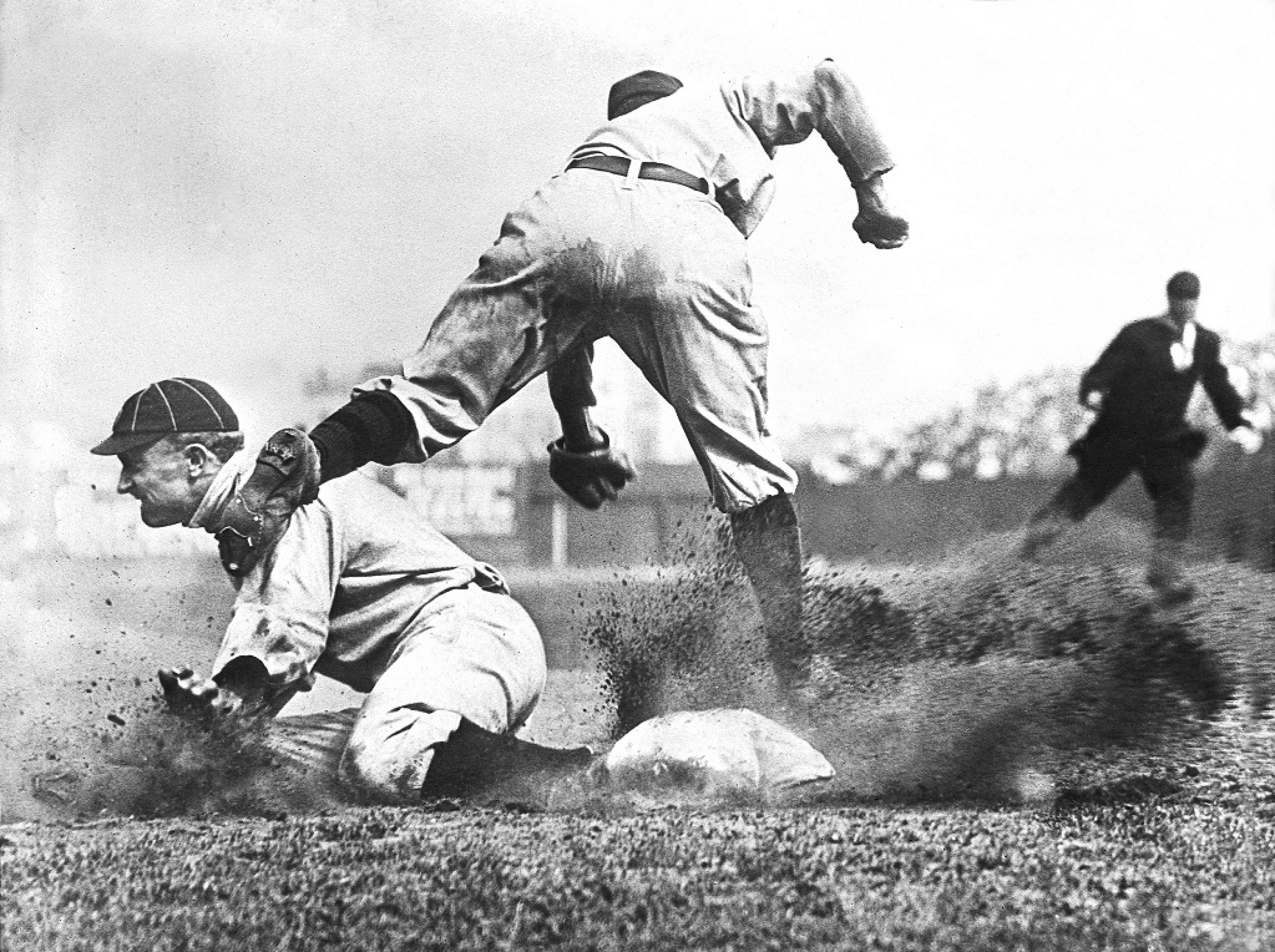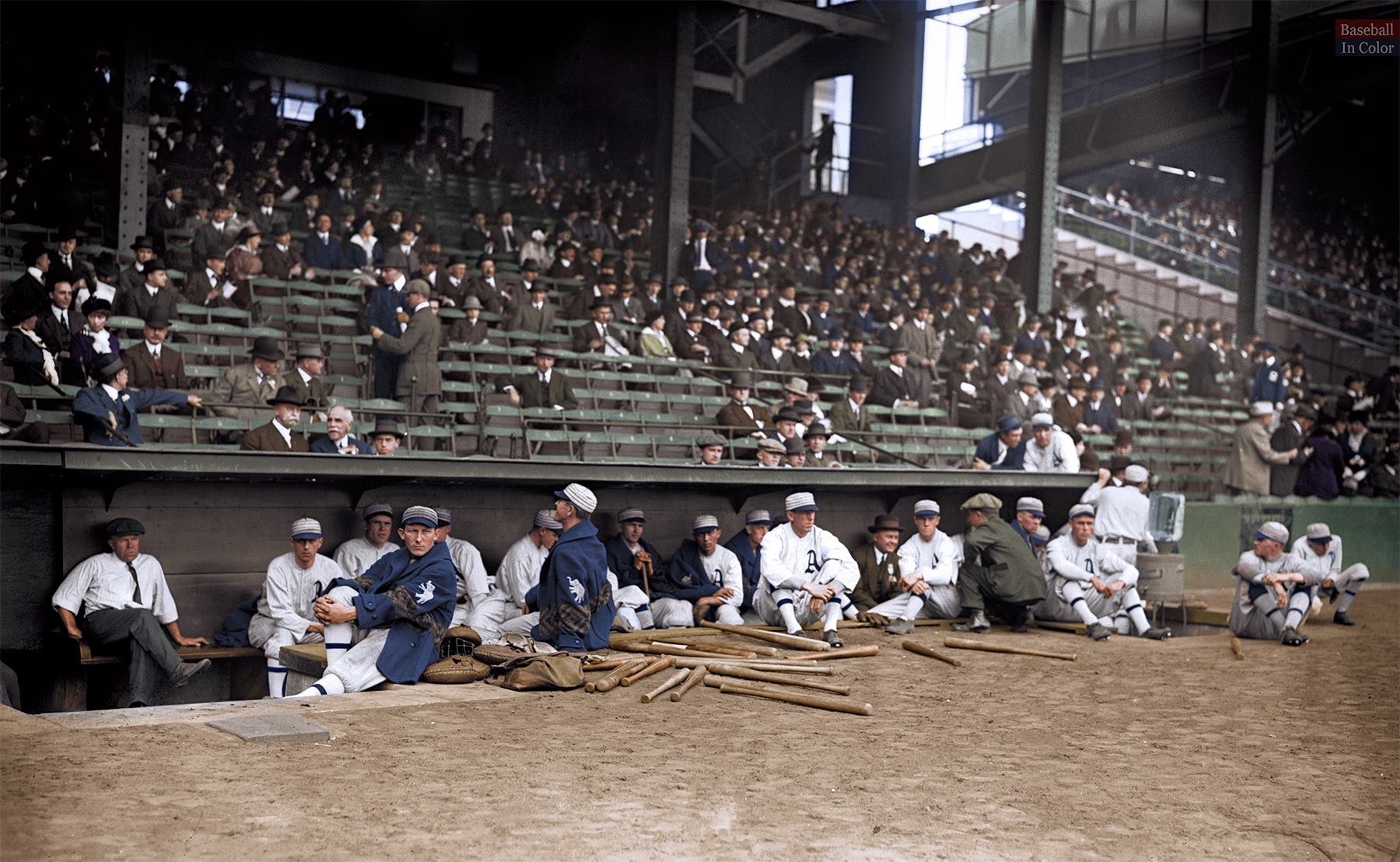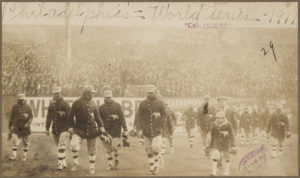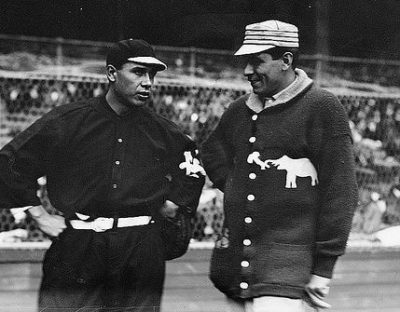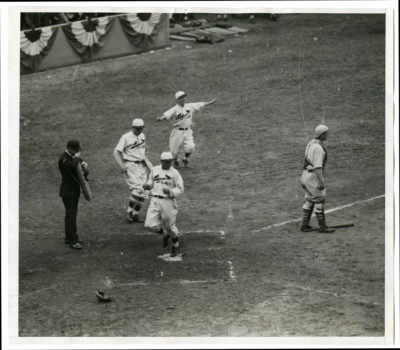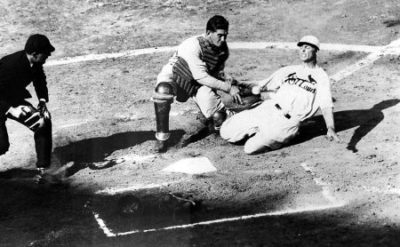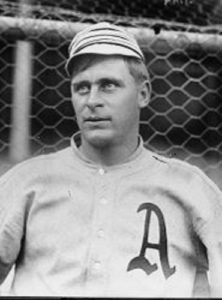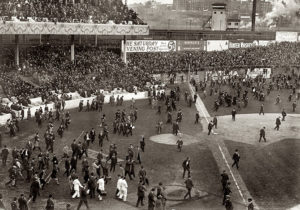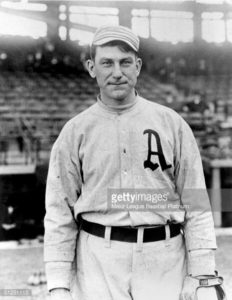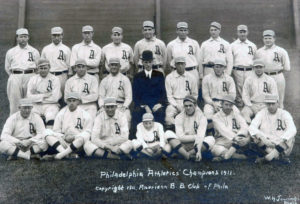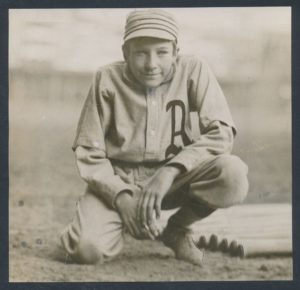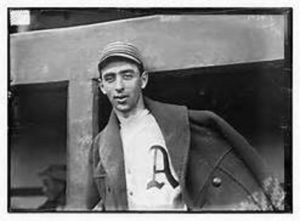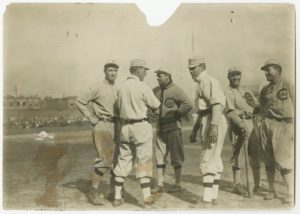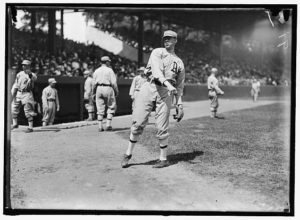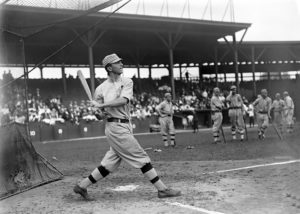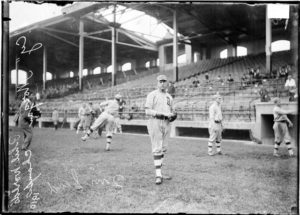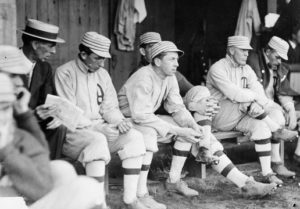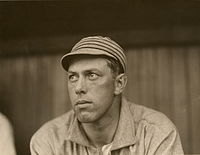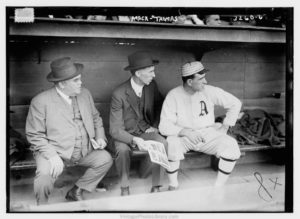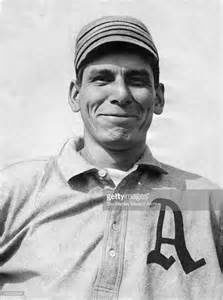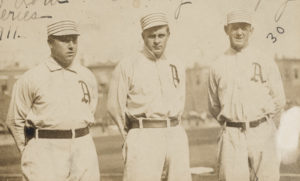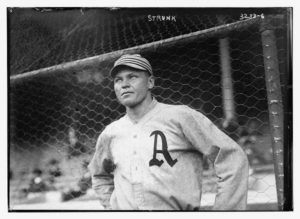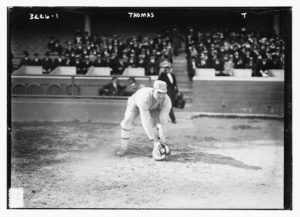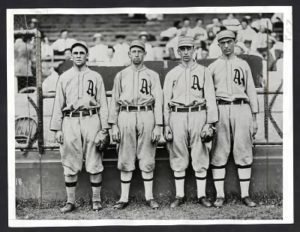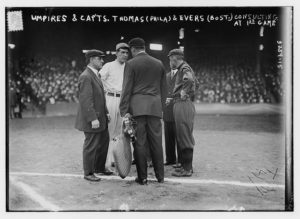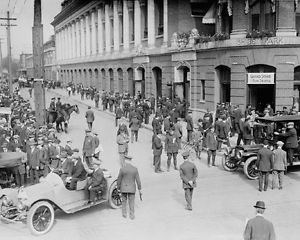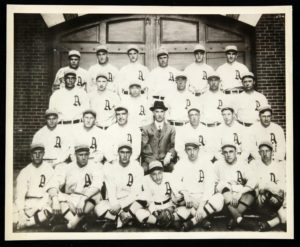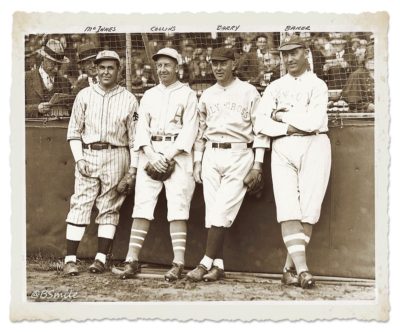Baseball History Comes Alive Now Ranked #2 by Feedspot Among All Internet Baseball History Websites and Blogs!
Guest Submissions from Our Readers Always Welcome!
Scroll Down to Read Today’s Essay
1910-1914 Philadelphia Athletics Photo Gallery
Click on any image below to see photos in full size:
How Bad Can a Baseball Season Get?
White Sox Challenge Post-1900 Record of 1916 Philadelphia A’s For Futility
Here in Chicago, we’re in the midst of a stunningly bad baseball season. The Cubs, who came into the season with high expectations, find themselves in last place, proving that signing an eight million-dollar-a-year manager can’t compensate for grossly overvaluing your talent. Starting a season without a legitimate closer has proven to be a disaster with 20 blown saves already.
But things are absolutely rosy for the Cubs compared to the nightmare unfolding on the South Side of town. This could end in a historically bad season for the White Sox with many records for ineptitude well within sight. The Sox are cruising along at a 27-85 clip, (.241), 41.5 games behind the division-leading Guardians. Coming off a 3-22 July, they find themselves currently mired in a franchise-worst nineteen-game losing streak. They haven’t won a game since July 10, and their offense is last in runs, batting average, on-base percentage, and slugging percentage. Plus, their bullpen has blown a major-league-leading 27 saves.
Unlike the Cubs, the 2024 season held little promise for the White Sox. Owner Jerry Reinsdorf was quoted as saying that 2023, in which the White Sox finished at 61-101, was the worst in his 43 years in baseball, calling it “an absolute nightmare.” Little did Jerry realize at the time that 2024 would be even worse…much worse!
My Baseball History Alarm Bells Are Going Off!
The White Sox performance thus far unfortunately calls to mind some dubious records that are well within their reach: the 1962 Mets record for the most losses ever (120); the 1961 Phillies record of 23 losses in a row; and the 1916 Athletics record for the lowest winning percentage (.235) in the modern era [Ed. note: the 1899 Cleveland Spiders went 20-134 .130 for the all-time record].
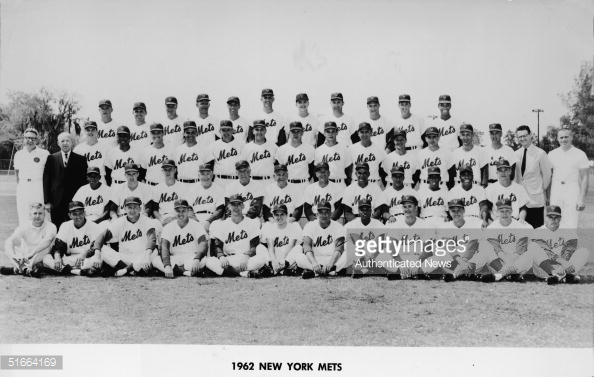
The 1962 Mets still get a lot of notoriety for their 120 losses, but, being an expansion team, they at least had a legitimate excuse for their ineptitude. But not much attention is given to the 1916 Athletics, who many historians characterize as the worst team ever with a 37-117-1 finish. Let’s take a closer look at this historically bad team.
The 1916 Philadelphia Athletics
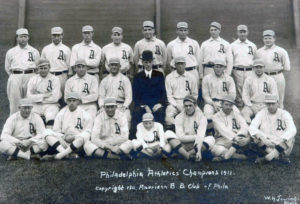
The A’s had been a powerhouse in the early 19-teens, winning pennants and World Series championships in 1910, ’11, and ’13. They also won the 1914 pennant, but their luck finally ran out as they were upset by the underdog “Miracle” Braves in the World Series. (The photo gallery highlights players from the 1910-1914 Athletics).
As we know, following this World Series loss, and amid competition from the newly-formed Federal League, owner Connie Mack began the great sell-off of his star players. The team went downhill fast, and by 1916 they were terrible. It’s hard to believe that a professional team could go from “so good” to “so bad” in two short years, but that’s exactly what happened.
(In the featured photo, colorized by Mark Truelove, we see A’s players probably from their pennant-winning year of 1914, shortly before the fire sale began. Visible are Jack Barry, Eddie Murphy, Jack Lapp, Stuffy McInnes, Bob Shawkey, Frank “Home Run” Baker, Boardwalk Brown, Eddie Plank, and Bris Lord, plus trainer Doc Martin and mascot Eddie Van Zelst.)
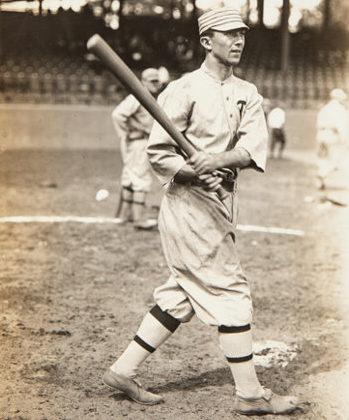
The 1915 team finished last with a record of 43-109…and things went downhill from there. By the start of the 1916 season gone from the team’s glory years were star players Jack Berry, Eddie Collins, Frank Baker, Eddie Plank, Harry Davis, Chief Bender, Herb Pennock, Danny Murphy, Eddie Murphy, Jack Coombs, and Bob Shawkey. Starting catcher Wally Schang broke his jaw in July and was gone for the rest of the season. In perhaps the worst omen of all, the A’s beloved batboy and “good-luck charm,” Eddie Van Zelst, passed away before the start of the season.
Just how bad was this 1916 team? Consider this:
- The A’s went 36-117 (.235, 54.5 games behind), for the lowest winning percentage in modern major league history (The Cleveland Spiders had gone 20-134 in 1899, but that’s a story for another day).
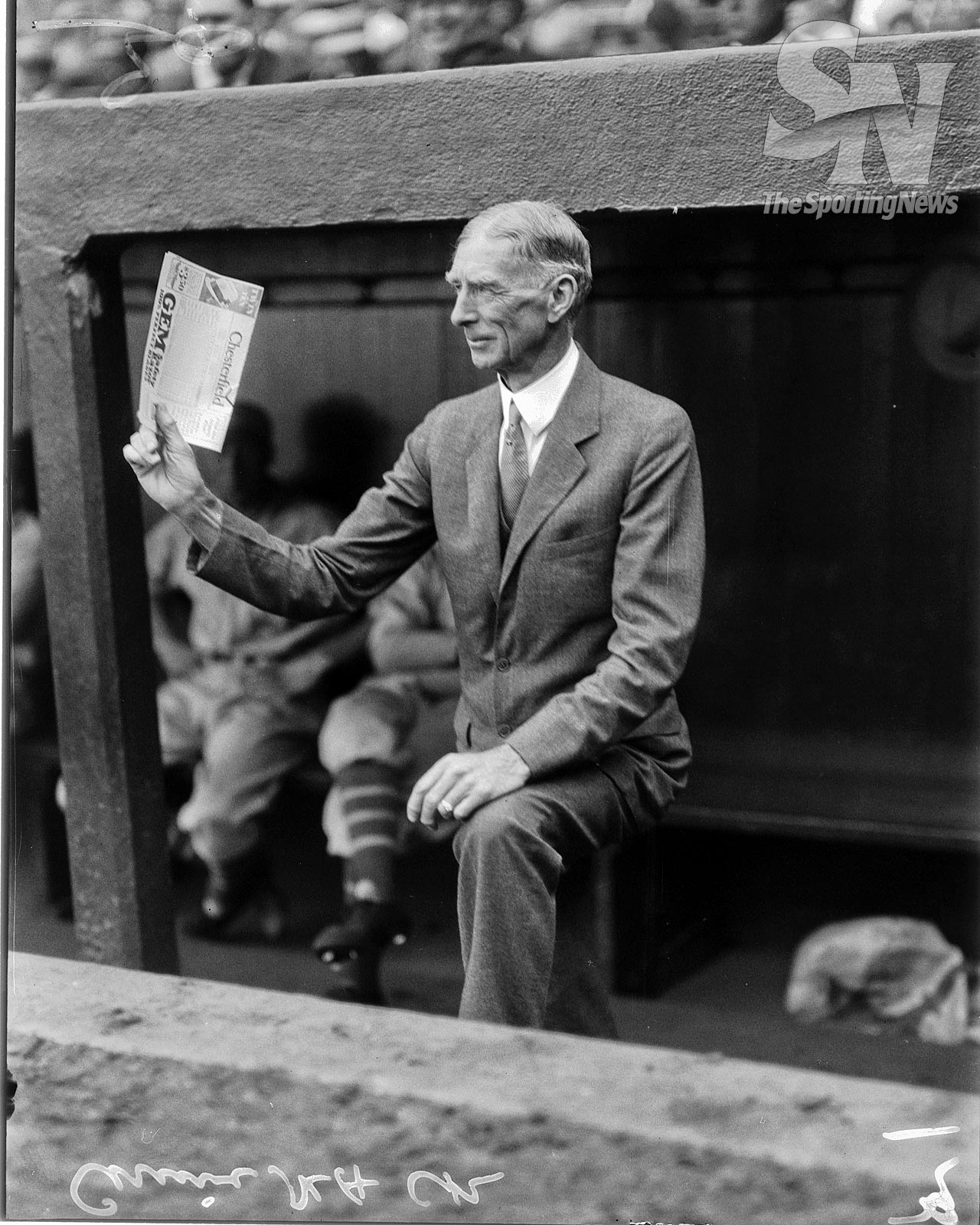
Legendary A’s manager Connie Mack - The A’s finished 40 games behind the next-worst team, the Washington Senators.
- One of the A’s shortstops, Whitey Witt, recruited from a Universalist seminary, committed 78 errors, tops on a team that committed 314 errors, more than two each game.
- Rookie third baseman Charlie Pick, replacing the great Frank “Home Run” Baker, committed 42 errors at the hot corner.
- The A’s had two pitchers who combined for a 2-36 record.
- In one game against the Tigers, the A’s walked 18 batters. Over the next three days, their pitchers walked 11, 10, and 10 batters, respectively.
- By May the A’s were 4-10. Then things got really ugly. There were losing streaks of 11, 12, and 20 games. In July the team went 2-28.
- The A’s had eight pitchers on the roster who lost games and recorded no wins.
After the fire sale, the A’s lingered on with nine straight second-division finishes, including six straight years in last place (1916-21). It wasn’t until 1925 that Connie Mack started putting the pieces together of another dynasty. They won three consecutive pennants (1929-31), and World Series championships in ’29 and ’30.
Can the White Sox Pull Out of it? Let’s Hope So…
The 2024 White Sox are flirting with some historically bad records. Let’s hope they pull out of it and avoid being associated with teams like the 1916 A’s, the 1961 Phillies, and the 1962 Mets. And let’s hope it doesn’t take them nine years to become competitive again, as it did with the 1916 Philadelphia Athletics!
Gary Livacari
Subscribe to our website, Baseball History Comes Alive with over 1500 fully categorized baseball essays and photo galleries, now surpassing the one million hits mark with over 1,204,000 hits and over 950 subscribers: https://wp.me/P7a04E-2he
Information: Excerpts edited from 1916 Philadelphia A’s Wikipedia page
